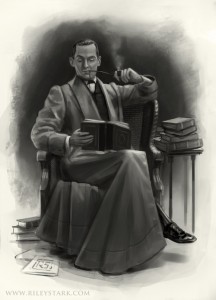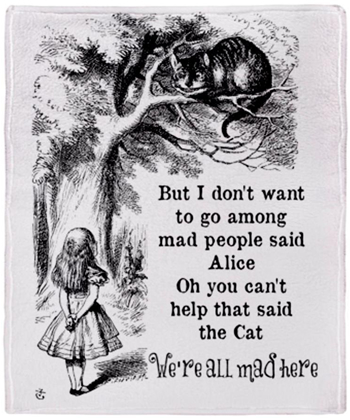Republished by Blog Post Promoter
 If you speak the English language, (which very few American do), you will appreciate that the period during which Arthur Conan Doyle wrote the Sherlock Holmes detective stories was, without question, the most prolific era in English literature. I have written a fictional “autobiography” which in intended to embody and resurrect the culture, literature and mystique of Great Britain at the pinnacle of it’s Imperialistic and Literary Majesty. Although the British Empire has relinquished it’s global domination of subservient nations, since World War I, to the burgeoning New World Order the English language now dominates as the preferred language the “gods” of the current era, The International Cabal of Global Corporations. Ironically, Sherlock Holmes elder brother, Mycroft, was arguably the most powerful man in England, serving the Queen as the unofficial director of the Secret Information Services in the Offices of the Chancellor of The Exchequer.
If you speak the English language, (which very few American do), you will appreciate that the period during which Arthur Conan Doyle wrote the Sherlock Holmes detective stories was, without question, the most prolific era in English literature. I have written a fictional “autobiography” which in intended to embody and resurrect the culture, literature and mystique of Great Britain at the pinnacle of it’s Imperialistic and Literary Majesty. Although the British Empire has relinquished it’s global domination of subservient nations, since World War I, to the burgeoning New World Order the English language now dominates as the preferred language the “gods” of the current era, The International Cabal of Global Corporations. Ironically, Sherlock Holmes elder brother, Mycroft, was arguably the most powerful man in England, serving the Queen as the unofficial director of the Secret Information Services in the Offices of the Chancellor of The Exchequer.
I love Sherlock Holmes because he is a man of preeminent  personal integrity and idiosyncrasy. Above all things he loved music and smoking Latakia and Cavendish tobacco in pipes, which were universally smoked by men during the Victorian Age. I managed a pipe and tobacco store for two years, early in my life, and very much enjoy the avocation of pipe smoking! I the visual effect of observing smoke drifting in languid drafts toward the ceiling, combined with the elegant flavor of fine pipe tobacco evokes a sublime, meditative state of being.
personal integrity and idiosyncrasy. Above all things he loved music and smoking Latakia and Cavendish tobacco in pipes, which were universally smoked by men during the Victorian Age. I managed a pipe and tobacco store for two years, early in my life, and very much enjoy the avocation of pipe smoking! I the visual effect of observing smoke drifting in languid drafts toward the ceiling, combined with the elegant flavor of fine pipe tobacco evokes a sublime, meditative state of being.
Mr. Holmes also enjoyed solitude, alchemy, intellectual stimulation, cocaine, mystery, action and adventure! He disdained personal notoriety, wealth and sex. Sherlock was an intensely private person, preferring the disheveled, masculine clutter of his rooms at Baker Street, rather than submit himself to the domesticated order of matrimony. Sherlock was a living demonstration of the adage, “If you want to move quickly, move alone”.
This book incorporates and amalgamates the authors, as characters, and their classic works of fiction of the 19th century, into the professional and private life of Sherlock Holmes — as a living, rather than fictional, person — including: Peter Pan, Dr. Jekyll and Mr. Hyde, Frankenstein, Dracula, Alice in Wonderland, as well as all of the Adventures of Sherlock Holmes, and the infamous life of Sir Arthur Conan Doyle himself!
During my many years invested in the creation of the Sherlock Holmes “autobiography” I read everything written by Arthur Conan Doyle and about him as an individual. I read all of the literature of the age. Moreover, I applied the principles of investigatory observation for which Sherlock Holmes is universally famous to discover that, in fact, Sherlock Holmes was a real person! The details of an extensive and elaborately convoluted conspiracy to dehumanize the greatest detective in history are revealed herein….
Content of this 15 minute audio presentation:
1) FORWARD: by Mycroft Holmes, and 2) AN OPEN LETTER FROM SHERLOCK HOLMES








